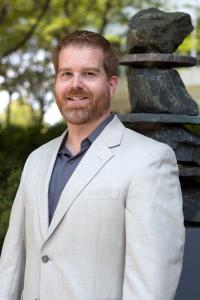SPS, Diversity, and You
Fall
2014
Letter
SPS, Diversity, and You
Sean Bentley, Director, Society of Physics Students and Sigma Pi Sigma
 As I made the transition this summer from 11 years as a college professor and SPS chapter advisor to my new role as SPS director in the SPS National Office, I wanted to make sure I did not lose sight of what first drew me to physics education and SPS, and what to this day I find most rewarding—making a positive impact on students’ lives. Because I no longer interact with students on a daily basis, I find that a good way to do this is to assure that each decision I make addresses this question: “How does this benefit SPS members and undergraduate physics students in general?”
As I made the transition this summer from 11 years as a college professor and SPS chapter advisor to my new role as SPS director in the SPS National Office, I wanted to make sure I did not lose sight of what first drew me to physics education and SPS, and what to this day I find most rewarding—making a positive impact on students’ lives. Because I no longer interact with students on a daily basis, I find that a good way to do this is to assure that each decision I make addresses this question: “How does this benefit SPS members and undergraduate physics students in general?”
The primary goal of SPS is to help undergraduates in physics, astronomy, and related fields develop into successful professionals and well-rounded members of society. To best achieve that goal, we need to work toward a society with a membership that reflects the diverse student population of the United States. A diversity of cultures, races, genders, and identities leads to a broad range of innovative ideas, allowing the society to be robust and effective in setting the course for the future of physics.
While we focus on improving the representation of different groups within SPS, we must not lose sight of the individual. Percentages are important benchmarks that show us how far we’ve come and how far we’ve yet to go, but physics is such a small community that each individual success story is crucial for improving the climate for underrepresented groups in physics and our society.
I believe we should strive for diversity not by attempting to ignore differences, but rather by recognizing and appreciating them. The current “I am SPS” campaign (see below) explores some of the things that make each of us, the nearly 5,000 members of SPS, unique. As you read this issue, please consider (and then implement!) ideas you have about what you, your chapter, and SPS as a whole can do to create a more inclusive physics community.
This is not a problem that can be solved overnight, but it certainly will not be solved if we do nothing. //
